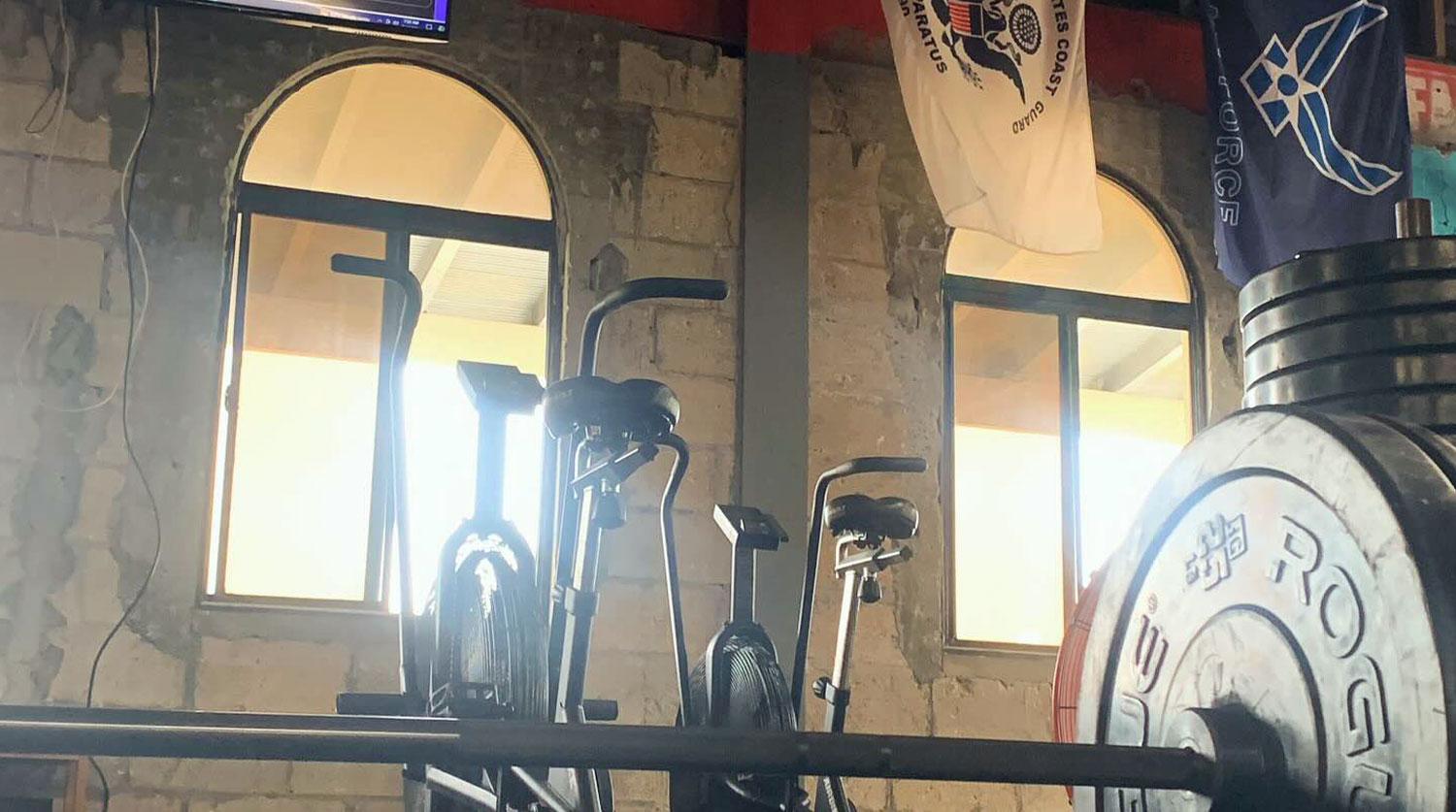Sports
New Rule Accelerates Entry of Imported Horses for Governor’s Cup, Setting Cut-off at 14 Days

During an emergency session convened by the St. Thomas/St. John Horse Racing Commission, a pivotal discussion unfolded, prompted by a morning email from 17 industry stakeholders including horse owners and trainers. The correspondence raised concerns about the eligibility criteria for the upcoming Governor’s Cup, particularly focusing on the advantage that newly-imported horses might have over locally-stationed, unraced horses.
Historically, the Governor’s Cup was open to horses that had either competed in the Virgin Islands or had been present in the territory for over 30 days prior to the race. This practice was intended to prevent newly purchased horses from overshadowing those already in the region, ensuring a fair competition. The email further addressed issues with the current system of classifying horses, suggesting that longstanding residents of the territory were at a disadvantage.
Hugo Hodge Jr., the Commission Chair, countered the classification concerns by explaining that horses are categorized based on their purchase price and win record, a long-standing method that he firmly supports. Hodge stressed the importance of offering spectators high-quality races, arguing that limiting entries to local horses could result in mismatched competitions that fail to satisfy public expectations. He highlighted his commitment to enhancing the racing experience for fans, despite his respect for owners who have maintained their horses during challenging times.
Echoing Hodge’s sentiments, Commissioner Sheldon Turnbull emphasized the need for flexibility in importing race-ready horses, especially as the territory resumes racing activities after a seven-year hiatus. He commended the dedication of owners who kept their horses active during this period, advocating for adjustments to past practices to reflect current realities.
Amid discussions, it was revealed that several owners were striving to meet the traditional 30-day threshold but faced unavoidable delays. This disclosure led to a broader conversation about adapting the cut-off period to accommodate such challenges, with Turnbull hinting at a potential change that some stakeholders might have anticipated.
The meeting progressed to a more inclusive phase, allowing attendees to voice their concerns and seek clarifications. Clinton Hedrington, President of the St. Thomas/St. John Horsemen’s Association, expressed support for the Commission’s forward-looking approach, despite being unaware of the letter’s distribution.
Ultimately, Turnbull proposed officially reducing the cut-off period for imported horses to 14 days, a motion that was met with approval from the attendees, marking a significant shift in policy aimed at revitalizing the racing scene in the Virgin Islands amidst its revival efforts.
Sports
Fitness and Wellness Centers in the U.S. Virgin Islands: Your Guide to Health and Well-Being

The U.S. Virgin Islands offer not only stunning natural beauty and tranquil beaches but also a growing array of fitness and wellness centers. For residents and visitors alike, these centers provide a perfect balance of exercise, relaxation, and holistic health practices, allowing you to maintain your fitness journey while enjoying the islands’ tropical charm. Whether you’re looking to shed a few pounds, enhance your mental well-being, or embark on a comprehensive wellness experience, the Virgin Islands have you covered.
Leading Fitness Centers in the U.S. Virgin Islands
1. Rock Life CrossFit (St. Thomas)
Rock Life CrossFit in St. Thomas is one of the most popular fitness centers, particularly for those who enjoy high-intensity workouts. The facility offers strength and conditioning programs that cater to all fitness levels. Whether you’re a seasoned athlete or a beginner, their team of certified trainers will guide you through challenging yet achievable goals. The center also provides community-driven workouts, fostering a supportive environment where members push each other toward fitness success.
2. Paradise Gym (St. Thomas)
Another well-known facility in St. Thomas is Paradise Gym. This full-service fitness center includes state-of-the-art gym equipment, a wide variety of cardio machines, and free weights. Paradise Gym is particularly noted for its diverse class offerings, ranging from high-intensity interval training (HIIT) to yoga and spin classes. The gym offers personal training sessions for those looking for a more tailored approach to fitness.
3. Synergy Fitness & Wellness Center (St. Croix)
Located in St. Croix, Synergy Fitness & Wellness Center is a popular destination for both fitness enthusiasts and those seeking a more holistic wellness experience. The center combines traditional fitness programs with wellness treatments such as massage therapy, acupuncture, and nutrition counseling. Synergy’s fitness classes include yoga, Pilates, strength training, and Zumba, catering to various fitness preferences and needs.
4. Beeston Hill Health & Wellness (St. Croix)
Beeston Hill Health & Wellness Center in St. Croix is more than just a gym; it’s a full-service wellness facility. The center offers an extensive range of fitness programs, from aerobics to personal training, alongside wellness services like chiropractic care, physical therapy, and a rehabilitation center. Beeston Hill’s focus is on creating a balanced lifestyle, integrating fitness with overall health and well-being.
Holistic Wellness Centers in the U.S. Virgin Islands
1. The Yoga Collective (St. John)
For those looking for a more peaceful approach to fitness, The Yoga Collective in St. John offers an array of yoga classes set against the backdrop of the island’s natural beauty. Whether you’re a seasoned yogi or new to the practice, the collective provides classes ranging from gentle restorative yoga to more vigorous vinyasa flows. The focus here is on mental and physical balance, helping participants achieve inner peace and relaxation.
2. West Indies Wellness (St. Thomas)
West Indies Wellness in St. Thomas is a boutique wellness center that emphasizes natural healing and holistic practices. Along with fitness offerings like yoga and meditation, the center provides a range of spa treatments, including massages, body wraps, and skincare services. This facility is perfect for individuals seeking a blend of fitness and relaxation, making it an excellent choice for a rejuvenating wellness retreat.
Embracing Health in the U.S. Virgin Islands
Whether you’re staying in St. Thomas, St. John, or St. Croix, the U.S. Virgin Islands are home to a variety of fitness and wellness centers tailored to meet diverse needs. Many of these facilities incorporate the islands’ natural surroundings into their programs, offering outdoor classes and activities that allow participants to connect with nature while working toward their fitness goals.
From CrossFit gyms and full-service wellness centers to yoga studios and spa retreats, there is no shortage of options for staying active and healthy in the Virgin Islands. Visitors and locals alike can enjoy top-tier facilities and programs designed to improve physical fitness, enhance mental well-being, and promote overall health.
Staying fit and healthy while in paradise has never been easier. Whether you’re a fitness enthusiast, a yoga lover, or someone seeking holistic wellness, the U.S. Virgin Islands offer the perfect setting for your health and wellness journey.
For those living in or visiting the U.S. Virgin Islands, fitness and wellness centers are abundant, offering a wide variety of services to help you stay in shape and relax. From intense workouts to soothing spa treatments, the Virgin Islands have a fitness and wellness solution for everyone. Embrace the islands’ natural beauty while prioritizing your health and well-being with the incredible range of options available across St. Thomas, St. John, and St. Croix.
Sports
Local Sports Teams and Upcoming Matches in USVI

As August 2024 unfolds, the U.S. Virgin Islands are buzzing with excitement over several upcoming sports events, particularly in soccer and cricket. These matches are set to showcase local talent and offer thrilling entertainment for sports enthusiasts across the islands.
Concacaf Nations League Matches in St. Croix
One of the most anticipated events is the Concacaf Nations League, where the U.S. Virgin Islands Senior Men’s National Team will compete against teams from the Bahamas and Barbados. These matches will be held at the Bethlehem Soccer Complex on St. Croix. The first match kicks off on September 7, 2024, followed by another on September 10, 2024. This tournament is crucial for the USVI team as they aim to progress in League C, Group C, and secure a stronger position in regional soccer.
USVI U15 Girls National Team in Trinidad & Tobago
Meanwhile, the USVI U15 Girls National Team is competing in the 2024 Concacaf U15 Girls Championship, held in Trinidad & Tobago from August 5 to 11. The team has been placed in Group D, alongside St. Kitts & Nevis, Guatemala, and Trinidad High Performance. Under the guidance of Head Coach Vin Blaine, the girls have prepared rigorously, with several friendly matches in Trinidad bolstering their confidence. These matches are pivotal in providing the young athletes with international experience and helping them gain recognition in the wider Caribbean soccer scene.
Local Cricket Matches
Cricket fans in the USVI also have something to look forward to this August. The local cricket scene is alive with several matches planned across St. Thomas, St. Croix, and St. John. These matches are part of the regular cricket season, where teams compete fiercely for top honors. With cricket being a popular sport in the region, these games draw significant crowds and foster a strong community spirit among residents.
Upcoming USVI Soccer Association Premier League
For those who follow local soccer closely, the USVI Soccer Association’s Premier League matches are set to continue through the month. These games feature top clubs from St. Thomas-St. John and St. Croix regions. The league is known for its competitive spirit, with teams vying for the championship in a series of matches that keep local fans on the edge of their seats. The playoff matches, in particular, are expected to draw large crowds and add to the vibrant sports culture in the USVI.
These upcoming matches are set to be a highlight of August in the U.S. Virgin Islands, offering residents and visitors alike a chance to support their teams and enjoy high-quality sports entertainment. Whether it’s the excitement of international soccer or the passion of local cricket, the USVI is the place to be for sports this month.
Sports
Registration Open for 2024 SPRD Governmental-Industrial Softball League

The Virgin Islands Department of Sports, Parks, and Recreation (DSPR) has announced the opening of registrations for the 2024 St. Thomas-St. John Governmental and Industrial Softball League. This popular league, which fosters community spirit and physical activity, invites teams and individuals to sign up for the upcoming season.
To participate, teams must comprise between 15 and 25 players, with a registration fee of $45 per player. This fee covers the costs of league operations, including field maintenance, umpiring, and equipment.
Eligibility and Registration Process
Both governmental and industrial entities in the St. Thomas-St. John district are encouraged to form teams. The league aims to bring together employees from various sectors, promoting teamwork and camaraderie outside the workplace. Interested parties can register either as complete teams or as individual players looking to join a team.
Registrations can be completed online through the DSPR’s official website or in person at their office. Early registration is recommended, as spots are limited and the league has seen increasing popularity in recent years.
League Structure and Schedule
The league will feature a structured schedule, with games taking place on weekday evenings and weekends to accommodate working professionals. The exact schedule will be released closer to the start of the season, ensuring teams have ample time to prepare and organize practices.
Each team will play a series of games throughout the season, culminating in playoffs to determine the league champions. The league also emphasizes fair play and sportsmanship, with specific rules and regulations to ensure a positive experience for all participants.
Community Impact
DSPR Commissioner Calvert White emphasized the importance of such recreational activities in promoting a healthy and active lifestyle among residents. “The Governmental-Industrial Softball League is more than just a series of games; it’s an opportunity for our community to come together, stay active, and enjoy the spirit of friendly competition,” he said.
The league also serves as a platform for networking and strengthening bonds within the community. Participants have consistently praised the league for its organization and the sense of unity it fosters among different sectors.
Looking Ahead
As the league gears up for the 2024 season, DSPR is also planning additional community engagement activities, including clinics and workshops for players to improve their skills. These initiatives aim to enhance the overall experience for participants and ensure the league’s continued success.
For more information on registration and league details, interested parties can visit the DSPR website or contact their office directly. Don’t miss the chance to be part of this exciting community event and enjoy a season of fun, fitness, and friendly competition.
For further details, visit the DSPR website or contact the St. Thomas-St. John office at (340) 774-0255.
-

 Education1 year ago
Education1 year agoEducation Board Seeks Input on Schools Through Comprehensive Survey
-

 Education2 years ago
Education2 years agoCTE Board Enthusiastic About New Curriculum Standards, Yet Anxious Over Apprenticeship Support
-

 Crime2 years ago
Crime2 years agoRegistered Sex Offender Detained for Illegal Firearm Possession During Annual Surveillance Drive
-

 Videos3 years ago
Videos3 years ago2022 Gubernatorial Election: Voters Speak Out
-

 Development1 year ago
Development1 year agoCosts Surge as Donoe Estates Housing Project Resumes with New Contractor
-

 Videos3 years ago
Videos3 years agoGubernatorial Teams Celebrate St. Croix’s Bull & Bread Day
-

 Videos3 years ago
Videos3 years agoWakanda’s Female Might: A Dive into ‘Black Panther: Wakanda Forever’
-

 Crime2 years ago
Crime2 years agoSt. John’s Westin Resort Scene of Armed Robbery, Prompting Heightened Police Vigilance




